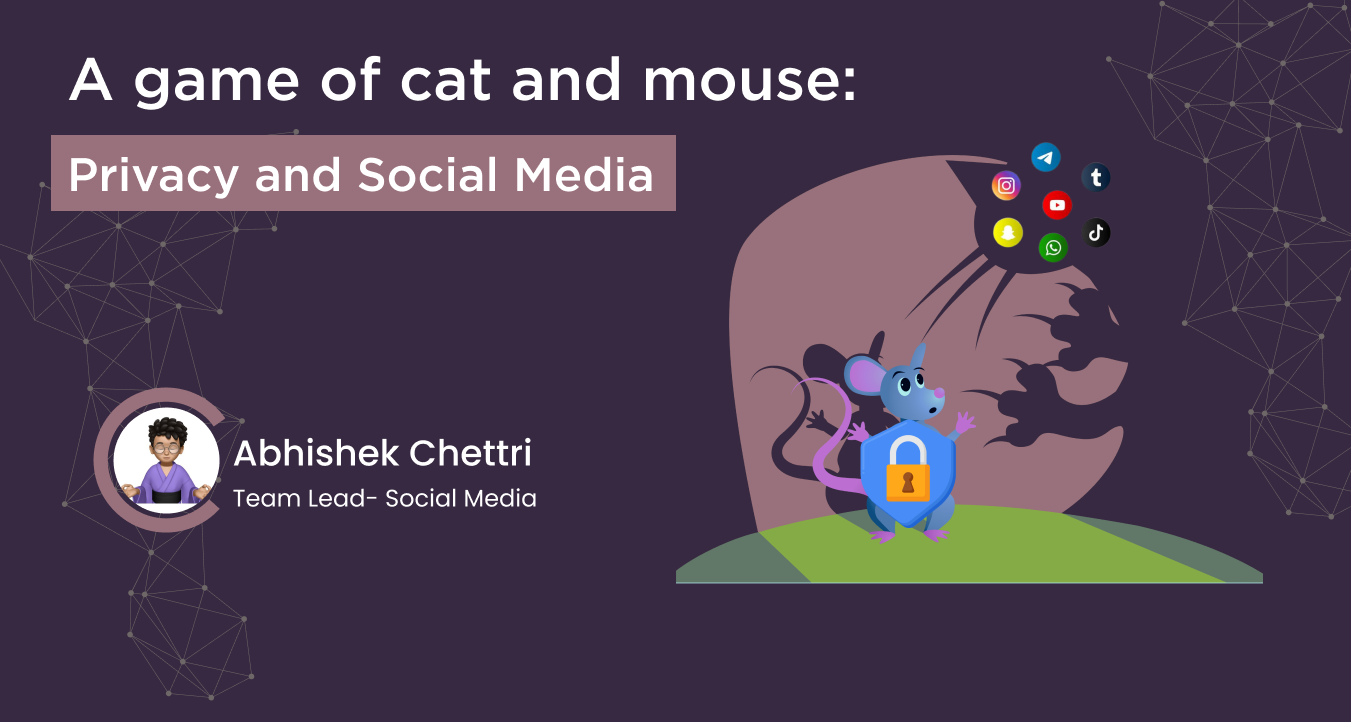Healthcare marketing is the process of developing marketing and communication strategies to attract new patients, guide them through new healthcare journeys, and improve patient care by building an open line of communication between healthcare organizations or providers, and their patients. Healthcare marketing seeks to provide valuable content and resources to patients across the care continuum using websites, paid advertising, SEO, social media, email marketing, video, and many more such mediums.
In 2022, a healthcare marketing strategy can take many different forms and span multiple channels to target the right patients at the right time and in the right way.
Why is Healthcare Marketing Important?
The importance of healthcare marketing is to develop and execute marketing strategies geared toward engaging and educating patients on their healthcare journey through the website, content marketing, SEO, digital advertising, and more. It is vital for sustainable growth, without it, there would be no inflow of new patients, and even your loyal patients may gradually drop off, one-by-one.
In healthcare, the most effective marketing is patient-centric which focuses on who the patient is, what information they care about, and developing a know, like, and trust relationship.
The healthcare sector is always evolving, and patient education and information are quickly becoming the forefront of focus. The healthcare industry is competitive, and as local competition rises and large hospital systems come into the mix, the more challenging it can be to stand out and promote your medical services.
Healthcare marketing enables you to increase your visibility from your competitors on local search engines and social media platforms.
Benefits of Healthcare Marketing
- Find prospective patients with a business goal in mind, i.e. a high-value service line growth or healthy payer mix
- Keep patients engaged with relevant, tailored, and timely outreach throughout their journeys
- Enhance your strategic advantage to attract more patients in a hypercompetitive environment
- Improve loyalty among your healthcare community and retain patients
- Generate more qualified leads and improve revenue with healthy margins
- Connect with patients across multiple channels
- Promote important medical services
- Analyze healthcare data to evaluate productivity and re-align strategy
Top Healthcare Marketing Strategies to Reach Patients
Now that we have more closely understood the benefits and importance of healthcare marketing services, it's time to take a look at the most effective tips that you should be leveraging in your practice to reach new patients.
Marketing in healthcare can seem overwhelming as to what to do and where to get started, which is why we have got a few tested and proven healthcare marketing tips that we leverage with our clients day in and day out.
#1. Build a Website for Patient Experience
A healthcare organisation's website is among the most important digital healthcare marketing assets they have.
A great healthcare website design is built around user experience and offers clear and immediate value from the moment a patient enters your site.
#2. Local SEO Starts with Your Google My Business
A big part of any healthcare marketing strategy is super local by nature.
Why? Because patients are normally only willing to travel so far for health care.
Therefore, it is necessary to win in your local search environment for whatever speciality or disease you treat.
Around 80% of patients perform an online search prior to booking an appointment with a healthcare provider.
Google My Business is king when it comes to winning medical SEO searches.
What is a Google My Business (GMB) listing, you may ask?
GMB is a free tool that allows physicians and businesses to manage their web presence for Google.
#3. Your Reputation Matters, Invest in Patient Reviews
Reviews have quickly become one of the most important parts of healthcare marketing strategies.
This is for numerous different reasons.
The main reason is that consumerism has made its way into healthcare.
Meaning patients shop for healthcare services and physicians in the same way they do for products on Amazon, they do research and read reviews. Around 92 % of consumers read online reviews which is a staggering number, and reputation matters most in healthcare than any other industry.
#4. On-Page SEO Starts With Great Content
“If you want to rank for it, you need a page for it.”
In simplified terms, if you want to appear high in local search rankings for your focus specializations and procedures, you must have quality and well-structured content on your website.
Here are some healthcare marketing On-Page SEO tips:
- Treatment pages should have at least 500+ words
- Add the relevant keyword at the front of your title tags
- Keep URLs shorter and include your keyword in your website URLs
#5. Digital Advertising is Extremely Targeted Now
Paid digital advertising has become a powerful way to connect and drive new patient leads no matter what kind of patient you seek or practitioner you are.
With so many options available to choose from Google Ads, Youtube Ads, Facebook Ads, Instagram Ads, Programmatic Ads, Display Ads, and Native Ads, you should be able to choose the right blend to reach your ideal patient.
Excellent planning is the first step in developing a successful digital advertising strategy for your health care marketing.
#6. A Patient Email Address is Still Extremely Valuable
Email marketing in healthcare is still a viable and powerful technique that you should use.
Email is an essential line of communication between you and your patients, whether it's for new patient funnels, remarketing to existing patients, or communicating critical information during times like COVID.
Investing time and money into creating a strong email marketing programme will bring a steady stream of new and returning patients (physical or virtual).
Some top tips for expanding your list include:
- Hosting a webinar
- Paid advertising funnels such as quizzes or assessments
- Downloads and ebooks
- Exclusive subscriber content, etc
#7. Telemedicine and Online Appointment Bookings are a Must
Before the COVID era, telemedicine and online booking of appointments were useful marketing factors, but now they both are essential for doing business.
The problem is that there is still a lot of confusion about how to get started with telemedicine and how to encourage people to use it.
You can start by informing your current patients about telehealth and why it is important. You can do it by sending emails, creating landing pages on your website and by making an announcement on social media.
When it comes to booking appointments online, your website should have this option available and accessible. On top of that, it is necessary to track your paid advertising campaigns for new appointment bookings effectively.
Healthcare Marketing Challenges (+ Solutions)
Healthcare marketing is unique and practitioners in modern times are competing with a wide range of practices, along with medical and health websites for self-diagnosis. These factors make digital healthcare marketing strategies even more vital. Let's take a look at a few of the common challenges faced by healthcare marketers and how these challenges can be overcome.
1. Changing consumer behaviors and expectations
Patients today feel empowered as healthcare consumers. They don't choose the doctor who is nearest to them—they choose the doctor who can provide the convenience and a level of care that matches their needs. They're becoming more interested in telehealth, online appointment scheduling, and online access to health information.
Today's healthcare challenges are frequently centered on these shifting patient/consumer behaviors, particularly when clinics and hospitals fail to adapt to what patients require. Patients are searching for convenience and care. Patients expect the experience to be similar to customer service, and if you don't deliver, they'll go somewhere else.
Solution: With changing consumer behavior, the demands from health care providers are changing with an increased preference for alternate non-traditional care delivery settings. Consumers are increasingly preferring to have their healthcare requirements met remotely or from the safety and comfort of their homes. They expect their healthcare providers to prioritize adherence to safety protocols. Moreover, they are willing to have a long-term relationship with providers with whom they develop trust and comfort. Organizations that accept these changes and see them as an opportunity to grow and evolve will benefit, while those that ignore the change and simply wait for the pre-COVID world to return will find the going more challenging over time.
2. Reviews from online doctor rating sites
Today's patients want to know exactly what they're getting into before visiting your clinic or hospital. It's good to believe your credentials matter more than what others are saying about you. However, if other doctors in your region have similar backgrounds, a patient is more likely to believe what others are saying.
Solution: Many doctors we speak to are opposed to this trend. They don't want to pay attention to online reviews, since they believe they have little control over what people are saying. However, 84 percent of people trust online reviews as much as a recommendation from a friend.
3. Lack of personalization due to the Health Insurance Portability and Accountability Act (HIPAA)
In marketing, personalization is everything. Consumers do not want to be inundated with unnecessary information, they want marketing tailored to the goods and services they are looking for. Due to HIPAA privacy policies, healthcare marketers are extremely limited in access and ability to use customer information, putting them at a disadvantage.
Solution: Regardless of health status or family history, everyone can benefit from preventative care. This area of focus offers the opportunity to reach out to customers with relevant messaging without compromising their privacy. Reminders to schedule annual physicals, statistics around illness and prevention, and showcasing the unique value the healthcare organization offers can trigger new patient sign-ups and appointment scheduling.
4. Targeting restrictions due to HIPAA
Digital marketers commonly use retargeting to encourage users to return to a website after visiting it, by displaying ads when they leave. To protect patient confidentiality and privacy, HIPAA prohibits healthcare marketers from retargeting users who view their websites with advertisements.
Solution: An inbound marketing strategy dramatically improves the provider's ability to gain new patients without breaching HIPAA regulations. Healthcare marketers should concentrate on creating useful, engaging content that is optimized for search engines. Due to the fact that most healthcare organizations target local communities, a lot of emphasis should be placed on local search engine optimization (SEO), where the website targets and optimizes for potential patients in the area.
Healthcare marketers can also use pay-per-click (PPC) advertising to reach targeted audiences and shape clear, compelling calls to action. This can be done through Google Ads or social media advertising.
5. Attracting the right audience
Crafting and ranking for the right content is one of the challenges in gaining conversions in healthcare marketing. Healthcare organizations often show in searches that the user is simply seeking to understand a concept or ailment. They are not always searching for services or products.
Solution: Even if they don't require your assistance right now, they or someone they know may do so in the future. Campaigns and assets should be built with a target audience, relevant keywords, and clear goals linked with them to meet needs at various stages of the marketing funnel.
Navigating Healthcare Marketing in 2022 and Beyond
When the world came to a halt in 2020, healthcare institutions immediately adapted to meet the needs and concerns of their patients. Consumers and patients have not only adapted but are driving many of these efforts, despite the challenging circumstances.
In 2022, marketers who adapt to new opportunities that benefit the healthcare consumer will maintain patient loyalty and engagement. Marketing for healthcare is an ever-changing world but has endless possibilities for healthcare professionals to reach the audience they need, grow their patient base, educate patients, feature physicians, and scale their practice.
If you are thinking to begin your healthcare marketing strategy then choose a partner that understands the space, and only focuses on marketing in healthcare. Consult a digital marketing company in Bangalore that understands the patient experience and industry very well and uses tested and proven methods to get you where you want to be!










